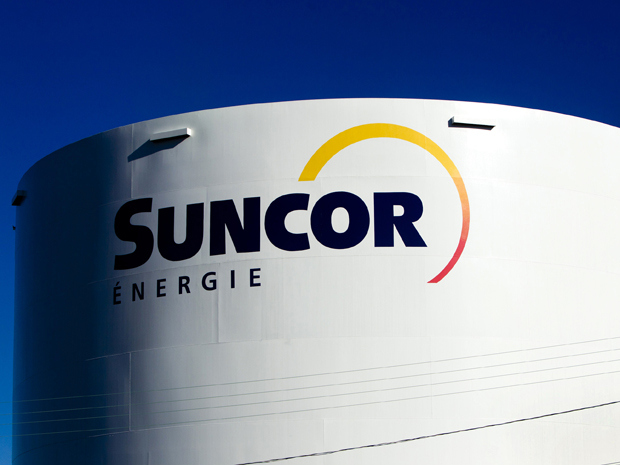MONTREAL — Suncor Energy Inc. says it plans to begin receiving crude oil shipped by rail from Western Canada at its east-end Montreal refinery by the end of the year.
Thousands of barrels of oil would be shipped by train through the city of Montreal and other island municipalities to be processed at the company’s refinery on Sherbrooke St. E. in Pointe-aux-Trembles.
The news comes in the wake of July’s train derailment in Lac-Mégantic, where an estimated 5.6 million litres of crude oil was spilled into the soil, waterways and air around the small Eastern Townships community from a train carrying oil from North Dakota.
Suncor isn’t the only Quebec refinery that will receive rail shipments of oil in the near future.
Valero Energy Corp., the company that owns the Ultramar refinery in Lévis, also plans to receive oil by train before the end of the year.
Both companies also support a plan by Enbridge Inc. to reverse the flow of a pipeline that, if approved by the National Energy Board, could carry up to 300,000 barrels of oil per day from Western Canada to east-end Montreal.
Suncor president Steve Williams said the Montreal refinery should begin receiving between 10,000 to 15,000 barrels of oil per day by rail by the end of the year, eventually reaching up to 30,000 barrels per day, or “a bit more.”
Suncor is installing rail facilities near the refinery to receive the crude oil, said company spokesperson Michael Southern. The train shipments would contain conventional crude oil coming from Suncor and other producers in Western Canada, he said.
When asked whether the trains would also carry bitumen — heavy crude oil from the oilsands — Southern told The Gazette the refinery is only able to process limited amounts of synthetic crude oil from Western Canada now, and he didn’t want to speculate on what could happen in the future.
The Suncor refinery can refine 137,000 barrels of oil per day. The majority of its crude oil comes from countries around the Atlantic Ocean basin. That oil is more expensive than western Canadian oil, Southern said, and is shipped by pipeline from Portland, Maine to Montreal.
In a conference call with investors, Williams said the Montreal refinery project is part of a plan to ensure market access for the company’s oil products.
Southern said Canadian Pacific or Canadian National — or both — could be Suncor’s rail suppliers. Both railways have train tracks on the island of Montreal, although CN’s lines travel further east than CP’s lines.
Neither CN nor CP would confirm Wednesday whether they are involved with the Suncor project.
North American oil companies have increasingly turned to railways for transportation because of a shortage of pipeline capacity. According to the Canadian Railway Association, shipments of oil by rail in Canada have skyrocketed from 500 carloads in 2009 to an expected 140,000 carloads in 2013. That’s equivalent to 230,000 barrels of oil each day, the association says.
Spokespersons for Valero and Ultramar were not available for comment Wednesday. But in a presentation to investors last month, Valero said it expected to begin receiving oil by train in Lévis between July and September.
The refinery has the capacity to process 230,000 barrels of oil per day. While the majority of the oil it processes arrives by ship from around the Atlantic Ocean basin, this year it also began receiving crude oil from the U.S. by ship.
With the accident in Lac-Mégantic and the increase in oil shipments by rail, Quebec should hold an inquiry into the safety of its transportation, whether by pipeline, rail, ships or trucks, said Steven Guilbeault, senior director of the Montreal-based environmental group Équiterre.
He said the Lac-Mégantic derailment was a wake-up call for many municipalities and citizens, who knew little about the kinds of dangerous materials being shipped through their communities.
“One thing that we realized with the accident in Lac-Mégantic is how little we know about this — what’s been happening to laws and regulations regarding the transportation of petroleum products,” Guilbeault said. “We need some kind of inquiry to give us answers.”
Trains to carry more oil through Montreal
























Laissez un commentaire Votre adresse courriel ne sera pas publiée.
Veuillez vous connecter afin de laisser un commentaire.
Aucun commentaire trouvé